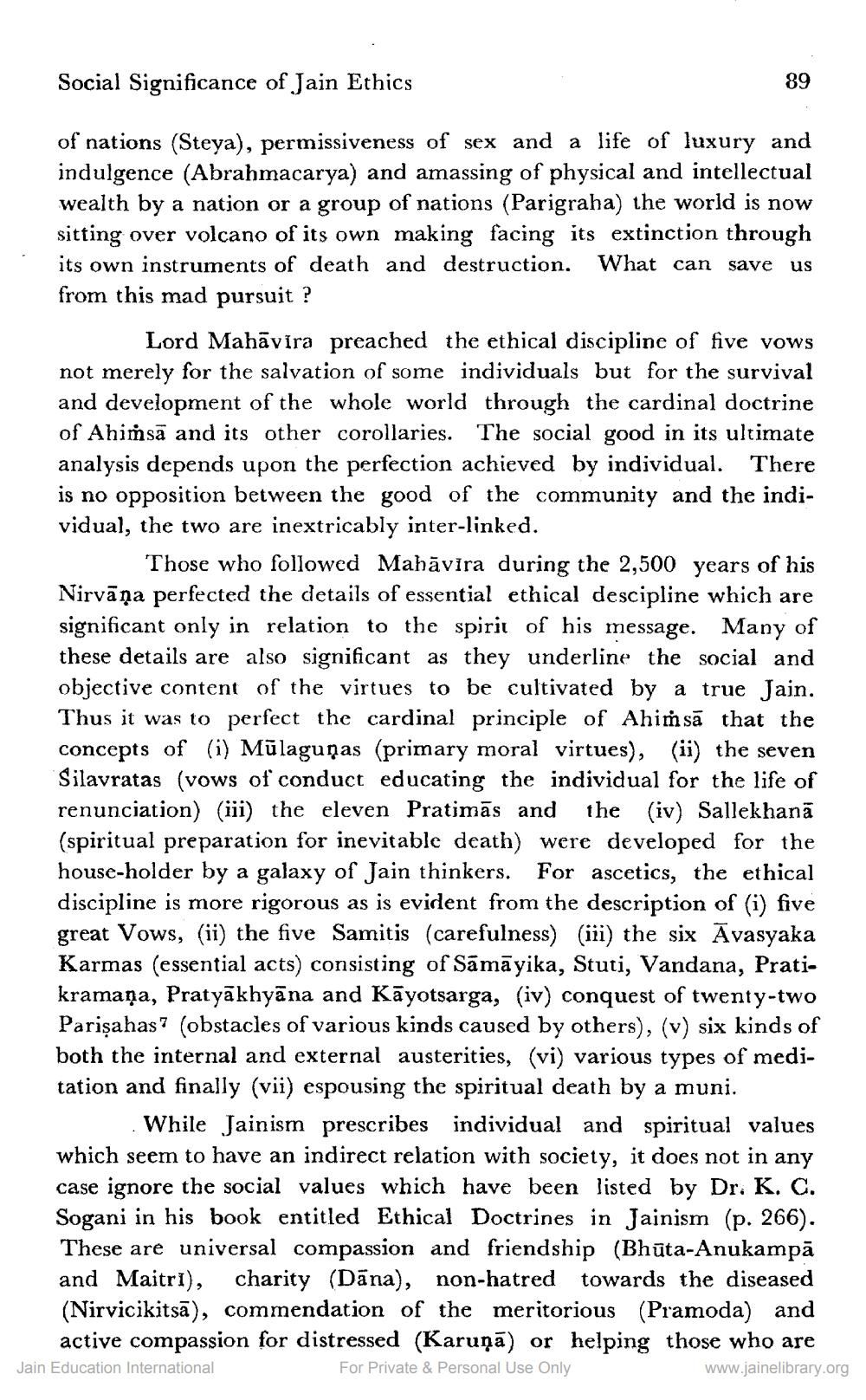________________
Social Significance of Jain Ethics
89
of nations (Steya), permissiveness of sex and a life of luxury and indulgence (Abrahmacarya) and amassing of physical and intellectual wealth by a nation or a group of nations (Parigraha) the world is now sitting over volcano of its own making facing its extinction through its own instruments of death and destruction. What can save us from this mad pursuit ?
Lord Mahāvira preached the ethical discipline of five vows not merely for the salvation of some individuals but for the survival and development of the whole world through the cardinal doctrine of Ahiṁsā and its other corollaries. The social good in its ultimate analysis depends upon the perfection achieved by individual. There is no opposition between the good of the community and the individual, the two are inextricably inter-linked.
Those who followed Mahāvira during the 2,500 years of his Nirvāņa perfected the details of essential ethical descipline which are significant only in relation to the spirit of his message. Many of these details are also significant as they underline the social and objective content of the virtues to be cultivated by a true Jain. Thus it was to perfect the cardinal principle of Ahiṁsā that the concepts of (i) Mūlaguņas (primary moral virtues), (ii) the seven Silavratas (vows of conduct educating the individual for the life of renunciation) (iii) the eleven Pratimās and the (iv) Sallekhanā (spiritual preparation for inevitable death) were developed for the house-holder by a galaxy of Jain thinkers. For ascetics, the ethical discipline is more rigorous as is evident from the description of (i) five great Vows, (ii) the five Samitis (carefulness) (iii) the six Āvasyaka Karmas (essential acts) consisting of Sāmāyika, Stuti, Vandana, Pratikramaņa, Pratyākhyāna and Kāyotsarga, (iv) conquest of twenty-two Parişahas? (obstacles of various kinds caused by others), (v) six kinds of both the internal and external austerities, (vi) various types of meditation and finally (vii) espousing the spiritual death by a muni.
While Jainism prescribes individual and spiritual values which seem to have an indirect relation with society, it does not in any case ignore the social values which have been listed by Dr. K. C. Sogani in his book entitled Ethical Doctrines in Jainism (p. 266). These are universal compassion and friendship (Bhūta-Anukampā and Maitri), charity (Dāna), non-hatred towards the diseased (Nirvicikitsā), commendation of the meritorious (Pramoda) and
active compassion for distressed (Karuņā) or helping those who are Jain Education International For Private & Personal Use Only
www.jainelibrary.org




